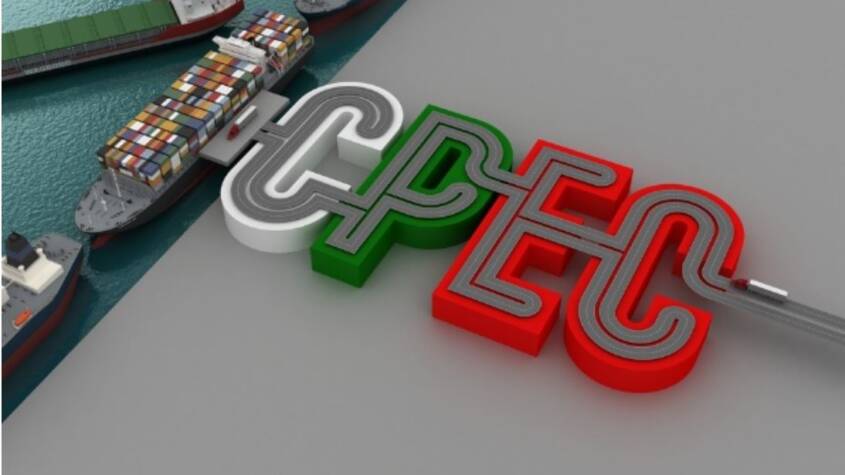Mega initiative CPEC reshapes Pakistan’s economic landscape, a decade of progress revealed
During a webinar organized by various institutions, speakers underscored the crucial role of the China Pakistan Economic Corridor (CPEC) in shaping a shared future between China and Pakistan. They highlighted CPEC’s transformative impact on Pakistan’s economy, particularly in poverty reduction and agricultural and industrial development through connectivity projects. The event introduced a forthcoming book, “CPEC: A Decade of Transformation across Pakistan,” emphasizing CPEC’s global recognition as a game changer. Various experts discussed topics ranging from the poverty reduction impacts of CPEC’s energy projects to the role of academia and think tanks in policy formulation, digital interconnectivity, and cultural exchanges between China and Pakistan.
The speakers during a webinar on Thursday highlighted a pivotal role played by the China Pakistan Economic Corridor (CPEC) in fostering a community for a shared future between China and Pakistan.
The Webinar on “A Decade of China-Pakistan Economic Corridor” was organized by the Centre for BRI and China Studies, Institute of Peace and Diplomatic Studies (IPDS) and Pakistan Research Center, Inner Mongolia Honder College of Arts and Sciences, China, in collaboration with the Alliance of China Pakistan Research Centres.
The mega initiative had significantly transformed Pakistan’s economic landscape and contributing to poverty reduction, the speakers said, adding the implementation of connectivity projects, particularly in farm-to-market initiatives, had brought revolutionary changes to agriculture and industrial development in Pakistan. While looking at the decade of CPEC’s impact, they said the global community must recognize its status as a game changer and a fate changer.
President of IPDS Dr. Farhat Asif emphasized the significance of the webinar, introducing the forthcoming book, “CPEC: A Decade of Transformation across Pakistan – Regional Impacts and Progress,” a collaborative effort of both institutes. Director of the Pakistan Research Center Richer Tang Jun offered insights into the book, focusing on the developmental strides made over the decade.
Director of the CPEC Research Centre Dr. Xiaqing Xie highlighted the poverty reduction impacts of CPEC in Pakistan through energy projects.
Dr. Liaqat Ali Shah, Head of Policy, Centre of Excellence for CPEC, emphasized the role of academia and think tanks in formulating actionable policies.
Prof. Dr. Sun Hongqi, Director of the Pakistan Center for Educational and Cultural Studies, Jiangsu Normal University, emphasized the close ties between China and Pakistan, drawing global attention to CPEC.
Dr. Tahir Mumtaz, Director of the China Study Centre, stressed the importance of people-to-people exchange and scientific innovation.
The webinar featured discussions on digital interconnectivity by Xiang Yang Scarlet, Director of China Study Centre, and the cultural bonding potential of aesthetic truck art by Prof. Jin Qiang, Deputy Director of OIC Research Centre.
Chinese envoy Zhao Shiren urges students to uphold integrity and strengthen China-Pakistan ties
LAHORE:The Consul Generals from several countries and other distinguished guests attended …











